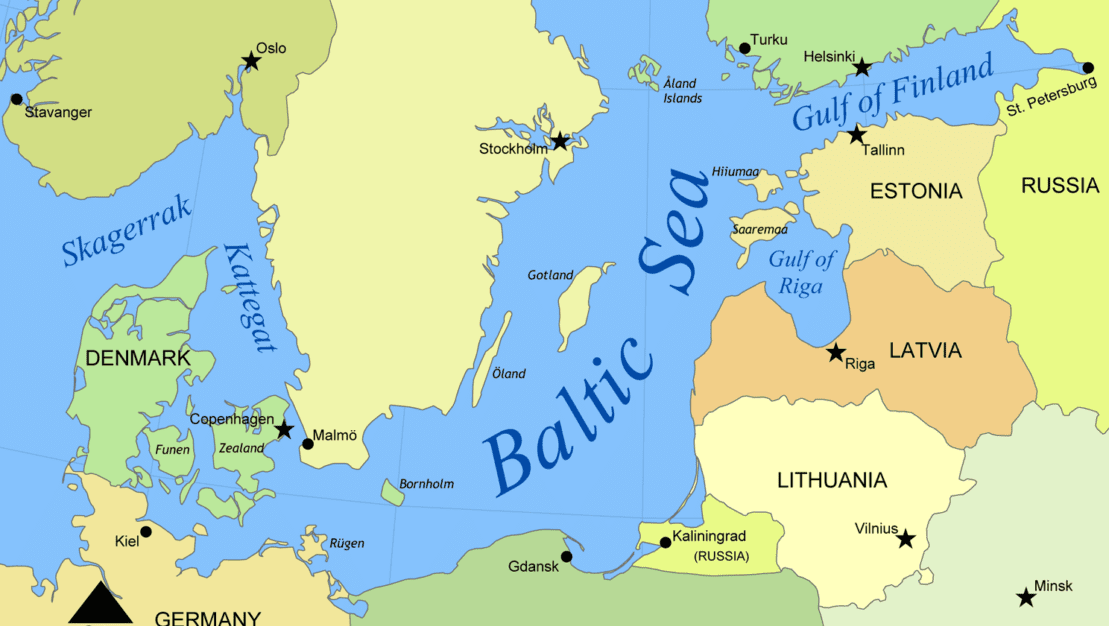
Image: NormanEinstein derivative work: Materialscientist, CC BY-SA 3.0, via Wikimedia Commons
Russia may be flirting with provocations in the Baltic Sea.
Russian media reported that a draft proposal by the country’s Defence Ministry states that it intends to adjust its maritime borders as the current delineation of its waters, approved internationally in 1985, were “based on small-scale nautical navigation maps” and don’t align with the “modern geographical situation.”
The document listed the adjustments Russia planned to make, which would affect Finland, Sweden, Lithuania, and potentially Estonia. They focused on the inland waters of the Gulf of Finland and waters off the coast of the Kaliningrad exclave near the cities of Baltiysk and Selenogradsk.
The Moscow Times had initially reported the story, and very quickly afterward, a Kremlin spokesperson denied any such plans to the state news agencies Tass and RIA. The link to the document that the Moscow Times had cited suddenly disappeared as well.
Nevertheless, Sweden, Finland and Lithuania have expressed their alarm at what they fear is an intentional escalation, whether on the ground or another means of Russia’s propaganda and information warfare against Europe.
Lithuania Foreign Minister Gabrielius Landsbergis took to X to call it another hybrid operation by Russia to spread fear, insecurity, and doubt and called for a “reasonably determined” response from NATO and the EU.
In Lithuania on Wednesday for an official visit, German Defence Minister Boris Pistorius reiterated Landbergis’ fears stating “whatever this was or actually is, it appears to be another example of the thoroughly perfidious kind of hybrid warfare that Putin is practicing,” reported German news agency dpa.
Sweden and Finland have become increasingly wary of an attack by Russia, with whom it shares the Baltic Sea, hence both countries’ recent decision to join NATO.
Sweden expressed particular concern about Gotland Island, a large island in the Baltic Sea with 60,000 inhabitants.
“I am sure that Putin threw both eyes on Gotland. Putin’s goal is to gain control of the Baltic Sea,” Commander-in-Chief of the Swedish Armed Forces, Micael Bydén, told the media.
He added that the island would be a strategic location from which to threaten NATO nations around the Baltic region and control the waterways, which now belong largely to NATO countries.
Finnish President Alexander Stubb wrote on X that Russia had not contacted Finland on the matter and called on Russia to abide by its international agreements while assuring that Finland intended to address the situation tranquilly.
“Finland acts as always: calmly and based on facts,” he wrote on X.
Nevertheless, in his statements to Russian media, Kremlin spokesman Dmitry Peskov called out the NATO countries for inciting alarm against Russia.
“You see how tensions and the level of confrontation are escalating, especially in the Baltic region. This requires appropriate steps from our relevant bodies to ensure our security,” Peskov said.
